- Home
- Brandon Sanderson
The Way of Kings Prime
The Way of Kings Prime Read online
SANDERSON CURIOSITIES
the
WAY of
KINGS
PRIME
THE 2002 ALTERNATE VERSION
BRANDON SANDERSON
INTRODUCTION
This book is both one of my greatest accomplishments and one of my greatest failures.
I started it during a difficult time in my life. I’d graduated with my undergraduate degree in English in 2000, but had been summarily rejected from every graduate program to which I’d applied. (The book Elantris was my writing sample for those submissions.) The publishing industry didn’t want my books either; I’d been racking up a nice stack of rejections saying my books were too long.
On top of it all, I’d just finished writing what I consider two of the weakest books of my career. (Though later on the ideas from these unpublished books evolved into Mistborn.)
And this was when I decided to begin the most ambitious story I’d ever attempted.
I’ve talked a lot about that time in my life; you might have heard the story before. I started The Way of Kings because I needed something for me. Something to prove to myself that I still loved writing. After spending several years chasing the market by trying to write like popular writers who were selling at the time, I asked myself, “What would I most want to read? What would I be writing if I didn’t care what the publishing industry thought?”
The book you are now reading is the result. I was told my books were too long; this is even longer than any book I’d heretofore created. Publishers told me to focus less on magic and more on creating gritty Earth-like settings, like what was selling at the time. I went off in a completely different direction, into a land of knights in magical power armor, ancient magics, and an ecology that was far, far removed from anything you’d find on Earth.
To an extent this was me giving up, but in the most glorious way possible. I had realized, during those dark moments, that I loved writing so much that I wasn’t going to give up, even if I was never published. The Way of Kings was for me. It was my exploration of my own goals for the fantasy genre—my feelings of where it could go, what it could do—and what I’d like to see fantasy become.
I’ve talked about something my friends jokingly called “worldbuilder’s disease.” That’s the affliction a writer can get where they spend all their time worldbuilding, and never actually tell their story. For The Way of Kings, I decided to GIVE myself worldbuilder’s disease. I let myself just think and plan about the world for months and months before writing—far more than I normally did.
At the time, I was working the graveyard shift at a hotel and would write during downtime. I bought a three-ring binder, and I started printing off pages of Roshar’s worldbuilding each day after I finished. I filled that thing up with some three or four hundred thousand words of ideas for the setting—more words than the book itself eventually had. In part, this was to give myself time to deal with all the rejections I’d been getting.
Things eventually got better. I finally got accepted to a graduate school. (BYU let me in; I hadn’t wanted to apply there initially because that’s where I’d done my undergraduate studies. However, out of twelve applications the first year and another eight the next year, it’s the only school that accepted me.) I started to see some small successes in publishing. And right around the time I finished The Way of Kings Prime, I finally sold a book.
The Way of Kings saw me through it all. It shepherded me through my transition from an amateur to a professional writer—and the text, as you’ll soon find out, shows that. This book is a failure, but a spectacular one.
I’d never attempted something on this scope before, and so I tried to write too many different viewpoints, with too many different plotlines for me to juggle. The end result, as you’ll read, is a book that lacks focus—it’s trying to do too much. What it envisions is awesome, but because of my limited skill at the time, I ended up with a large number of fragments of different stories told together in one book—rather than something that tells a single narrative.
Everything is going to feel just a little off to you in this novel. Indeed, themes like mental health, which I later learned better ways of addressing, are . . . handled less delicately in this book. Also, in reading history, I found that many arranged marriages happened between people of extremely disparate ages, and I wanted to explore that kind of strange relationship. (I did it in a way that didn’t involve anything uncomfortable happening—but it still came off poorly in the book. Fair warning.)
Almost all the characters are here, though most of them have different names. (Jasnah and Dalinar are the only names I remember keeping. And I don’t believe Navani exists yet.) Kaladin, called Merin in this, has a completely different arc—as I hadn’t put Bridge Four into the book yet, and hadn’t yet figured out how to make spren part of the world as I wanted.
Taln, the Herald, is a main character—I envisioned him as the main character of the series back then, though his arc was supposed to be uncertain, as I didn’t want you to know if he’s actually what he claims, or if he’s delusional.
The events of this book are far, far different from the published version. So please don’t assume anything in here is still canon, or an indication of the future for the real Stormlight Archive—even the name of the series was different; I was calling it the Oathshards. All that said, I’m very proud of this novel. It’s the book I wrote right before Mistborn, and is of a similar quality—just less controlled.
It taught me a great deal, however, and I still think it’s worth reading—so long as you understand that the book is an embryonic version of the story I truly dreamed of telling. I would eventually gain the skill and confidence, after years of thinking about what went wrong, to write the book a better way. If for some reason you haven’t read the published version, please read that one first.
Despite all its flaws, it’s exactly what I needed when I wrote it. And it is the seed that eventually grew into something great. I hope you find something in it to love.
Brandon Sanderson
April 2020
ACKNOWLEDGMENTS
Even though The Way of Kings Prime was never published in the traditional way, it still had a large group of people—friends, family, members of writing groups—who read it and gave feedback. Even by the time Elantris was published, the binders with the printed pages of the book you now hold in your hands were still being shared around. (In fact, one of those binders full of comment-filled pages was literally used as a doorstop when helping a friend move apartments.) So, thank you to everyone who read, commented upon, and enjoyed this book throughout the years.
For this Sanderson Curiosities edition, big thanks go to Peter Ahlstrom and Is∞c Stewart for shepherding it from manuscript to print. Kristina Kugler provided exceptional proofreading and copyediting, for which we are very grateful. We especially want to thank Kristy S. Gilbert at Looseleaf Editorial & Production for the book’s layout and design. Her talents and hard work can be seen on every page. Additionally, Isaac Stewart would like to thank Brandon Sanderson for creating the map and symbols that appear on the next few pages.
THE DOUBLE EYE
This is a representation of the Double Eye as it appears in Rosharan art. Sometimes it appears stylized or without glyphs, as seen on the next page. Other times the Ten Forces are left out in favor of portraying the Ten Essences more prominently.
chapter 1
Dalenar 1
Dalenar could see a highstorm approaching. Its clouds crested the horizon like a rising wave, dark, silent. It was still distant, but it would come. Furious and exact, highstorms were as inevitable as the rising sun.
The wood lurched beneath his feet, and Dalenar reached reflexivel
y for the tower’s rail. The battlefield stretched below him, a world of screaming men, metallic rings, and hissing bowstrings.
“When we return,” Elhokar muttered from a short distance away, “remind me to find a towermaster who doesn’t see fit to run over every boulder on the battlefield.”
Dalenar snorted quietly, scanning the battlefield. Spearmen in Alethkar blue held in a tight formation around the advancing tower, protecting the wooden structure and using its momentum to help push them forward as they pressed against the enemy line. Two massive chulls pulled the tower, a fifty-foot high construction of wood and steel. The chulls lumbered forward on trunk-like feet, encased in stone—the great northern beasts used massive, hollowed-out boulders like shells to hide their tender bodies. They didn’t even seem to notice their harnesses at their necks or the men scurrying at their feet.
The tower did its job well. Its two tiers of archers launched volley after volley of missiles at the enemy. Dalenar looked down at the soldiers, wondering what it would be like to be a simple footman facing the enormous structure. The unfortunate men were forced to choose between holding their shields up high to block the death from above, or holding them low to block the spears in front of them. The discarded bodies, left in heaps behind the advancing line, proved that both choices were equally fatal.
“Where is he?” Elhokar said, frowning. The king shone in his golden armor, one of the finest suits of Shardplate in Alethkar. Gold-trimmed with sunbursts on the shoulders and breastplate, the armor was topped by a helm mounted with four intricate spikes. Yet, majestic though it was, the armor looked wrong on the young king. Dalenar still expected a different face to look out from that helm—a face aged with wisdom, not young and untested.
“He’ll come, your majesty,” Meridas promised with a smooth voice.
Dalenar frowned, but said nothing. The king had a right to choose his counselors, and while Meridas was lowly of rank, he was still a lord—and a wealthy one. Without Meridas’ s merchant fleets, the king could never have moved across the Sea of Chomar in such a short time.
Elhokar didn’t respond. His eyes watched the battlefield, yet Dalenar knew he wasn’t planning strategy. Elhokar only desired one thing from this battle.
And that, unfortunately, left Dalenar to shoulder the bulk of the command. Dalenar turned, waving toward the back of the tower and its small crowd of aides, messengers, and lesser lords—Dalenar’s two living sons among them. A messenger approached, and Dalenar ordered a squad of heavy infantry to the eastern flank, to break a particularly resilient group of Prallan spearmen. The messenger nodded, moving to climb down and deliver the message.
“Where is he?” the king repeated quietly.
Dalenar moved up to stand beside the young king, his armored feet thumping against the wood. Dalenar’s own Shardplate wasn’t as intricate as that of his nephew—he hadn’t sewn it with silks, and it bore few adornments. It suited him, and he had worn it with pride since the day his brother had given it to him, so many years ago.
“The Traitor will commit himself soon,” Dalenar said with a slow nod, speaking over the sounds of fighting a short distance below. “Your sister’s strategy is a good one. The Prallan forces are buckling in the east, and their men fight with the frantic motions of a group demoralized. If the Traitor doesn’t join the battle soon, he will lose the day for certain.”
Elhokar waved a golden hand. “This day was won hours ago.”
“Don’t express the fall, your majesty,” Dalenar warned. “Our force is larger, but the Prallans fight on the land of their fathers. Arrogance will serve us nothing but misery.”
Again, Elhokar did not respond. He had a regal face, with a perfect Aleth countenance—dark black hair, oval face, and a distinct chin. In fact, he had more of a traditional noble look than his father had—Nolhonarin’s face had been flatter, his nose wide and blunt. Yet Nolhonarin had been a commander like Alethkar had rarely known.
Dalenar sighed to himself, turning back to the battlefield. What had happened to him? What had happened to the days when he could mourn a man’s falling one day, then drink to his victories the next? Why did he keep looking for the features of the father in the face of the son, and since when did he wonder what it felt like to be a footman in the enemy’s army?
His body felt old, lethargic despite the mystical strength and speed of his Shardplate. There had been a day when he’d sworn by the Tenth Name of the Almighty that he would die with Shardblade in hand, but that had been a day before he’d lost both brother and son on the bleak Prallan highrock.
“There!” Elhokar snapped suddenly, standing upright.
Dalenar followed the king’s gesture. In the distance he could barely make out a large tower rolling onto the battlefield. Lady Jasnah, Elhokar’s sister, had been right—the Aleth offensive had forced the Prallans to commit their towers despite the approaching highstorm.
“He’ll be on that tower,” Elhokar said. With that, the young king hopped up—Shardplate granting him spryness despite its bulk—and threw himself over the side of the tower.
“By the—” Dalenar cursed, leaning over the rail and watching the king drop to the first archer tier below, then leap over its ledge as well.
Dalenar spun, pointing at his sons. “Aredor, come with me. Renarin, hold the tower.”
Renarin, the younger of the two at seventeen, paled visibly at the command. “Father, I—”
“Renarin, we don’t have time for your worries,” Dalenar snapped as Aredor obediently leapt over the tower’s ledge. “You’re the king’s cousin. Hold the west and press the east. I need to try and keep our fool of a king from getting himself killed.”
“Yes, father,” Renarin said.
Dalenar ignored Meridas’s hostile glare—the clever merchant might be wealthy, and he might have the king’s ear, but he was too low a rank to be given command. Dalenar took a breath, then hoisted his legs over the tower’s rail and leapt off the side.
He plummeted some fifteen feet before landing with a grunt on the archer’s tier, the reinforced wood thumping loudly beneath his feet. His Shardplate softened the brunt of the blow, but his legs still protested the fall. Shardplate notwithstanding, falling from the top of a tower while wearing thirty brickweights of steel was not a casual hop. Gritting his teeth, Dalenar jumped off the archer’s ledge and fell to the second tier, then finally dropped one last time to the ground ten feet below.
Stone cracked beneath his armored feet, and he reached up, steadying himself against the tower as a page approached with Stormwind, his horse. Ahead, he could see Elhokar galloping toward the distant tower, riding directly through the Prallan lines, his honor guard—unmounted, of course—frantically trying to cut their way toward their king. Aredor rode a short distance behind, moving with the swiftness of youth.
Dalenar heaved himself into his saddle, keeping his mutterings about the king to himself, and kicked the beast into motion. The Prallan highrock hills were slick and barren during the summer, their uniform tans and browns broken only by the blood of men. They called the heights Stormlands for good reason—the highstorms had swept the land clean of everything but bleached stone and boulders.
Stormwind—a massive Shinavar beast—snorted as it approached the enemy line. Dalenar reached out his arm to the side and summoned his Shardblade.
It took ten heartbeats. Dalenar counted them as the smoke gathered around his palm, forming into the shape of a sword nearly six feet in length. Smoke became steel at the tenth beat, and the weapon fell into his waiting grasp. It was light and familiar in his hand—it knew him as he knew himself. It had become part of him the day he’d bonded it, and had grown to fit his exact needs. Dalenar’s Blade was a simple and utilitarian weapon, straight and double-edged with little ornamentation—only a single glyph patterned in the center of the metal. Morn, the glyph of loyalty.
Dalenar quickly overtook the king’s honor guard and galloped into the enemy ranks, his only companion Gelnin, his shieldbear
er, who rode on Dalenar’s second horse. The tattered Prallan spearmen were loosely organized, and most of them made way before his charging beast. Those who had the courage to attack a Shardbearer—attempting to win the Blade, armor, and title for themselves—already lay in pieces on the ground, slain by quick strikes from either Elhokar or Aredor.
Dalenar charged through the brown-uniformed ranks, using his mount’s momentum to barrel past the spearmen. A few moments later he broke through the back of their line, then pushed Stormwind in a gallop parallel to the fighting. Elhokar rode ahead, but Aredor had been slowed by an ambitious squad of soldiers. Aredor had been forced to stop and fight them, lest they cut his mount out from beneath him.
Dalenar kept moving, cursing the king as he avoided a group of heavy infantry. Shardblades could cut through steel as easily as lightning cut through the sky, and Shardplate couldn’t be pierced by regular weapons. A determined group of spearmen, however, could eventually wear down even the finest duelist. Youth, rank, and equipment made Elhokar brazen.
The Prallan tower loomed ahead. It was pulled by several teams of men—the Prallans hadn’t the resources to afford chulls. Hissing sounds announced arrows falling from above, and Gelnin moved out in front, deftly blocking what arrows he could. Dalenar was barely gaining on the king—Elhokar rode at an insane gallop toward the tower, without even a shieldbearer to protect him.
Dalenar moved in quickly, galloping his mount toward the tower while the archers were mostly focused on the king. Even still, several of them noticed him, and the arrows continued to fall. As Dalenar approached, he made out a brown banner on the front of the tower—it bore the glyph Jie, the symbol of a man forsaken, the Traitor’s adopted crest.
Suddenly, a galloping horse moved in beside Dalenar. Aredor’s face was urgent as he gestured to the side. “Father, there!”
-->

 Steelheart
Steelheart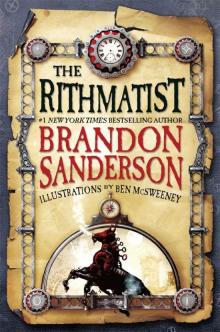 The Rithmatist
The Rithmatist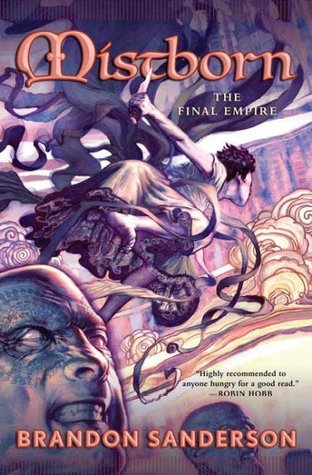 Mistborn: The Final Empire
Mistborn: The Final Empire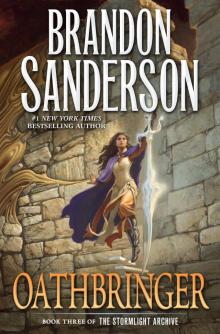 Oathbringer
Oathbringer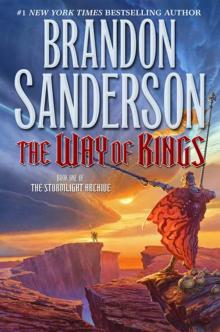 The Way of Kings
The Way of Kings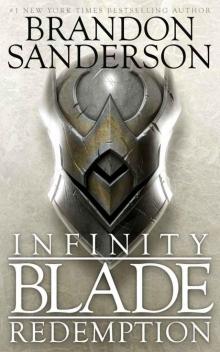 Redemption
Redemption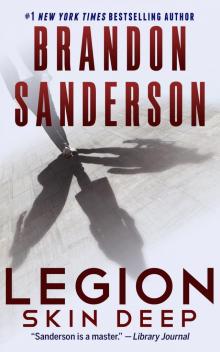 Skin Deep
Skin Deep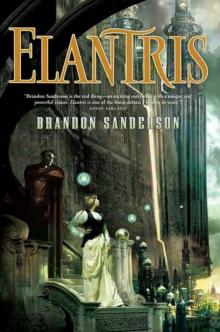 Elantris
Elantris Snapshot
Snapshot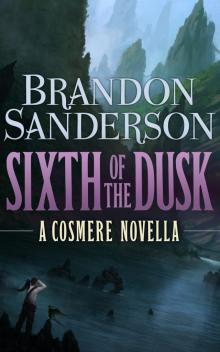 Sixth of the Dusk (Cosmere)
Sixth of the Dusk (Cosmere)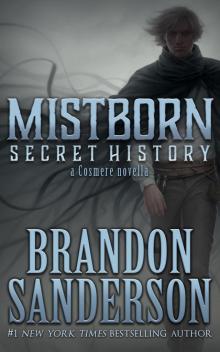 Mistborn: Secret History
Mistborn: Secret History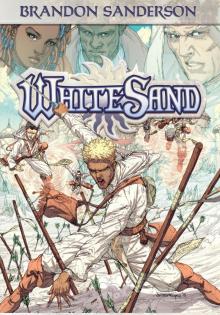 White Sand, Volume 1
White Sand, Volume 1 Legion
Legion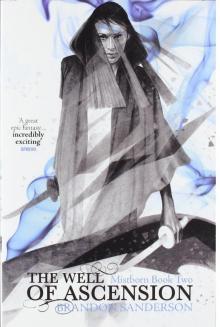 The Well of Ascension
The Well of Ascension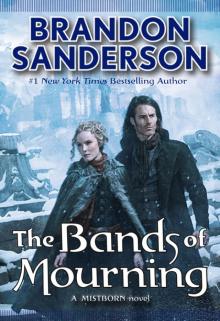 The Bands of Mourning
The Bands of Mourning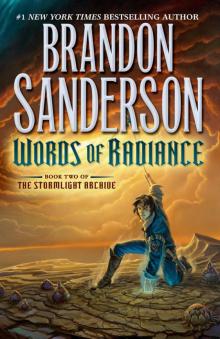 Words of Radiance
Words of Radiance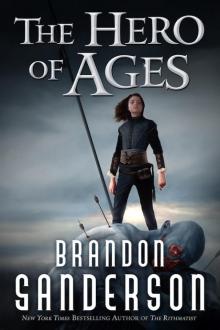 The Hero of Ages
The Hero of Ages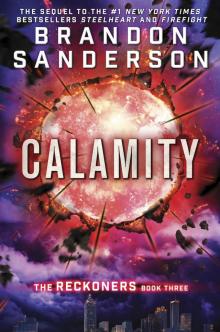 Calamity
Calamity Alcatraz Versus the Scrivener's Bones
Alcatraz Versus the Scrivener's Bones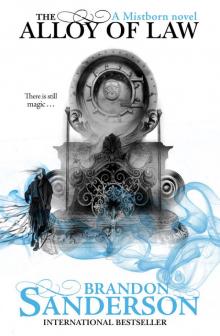 The Alloy of Law
The Alloy of Law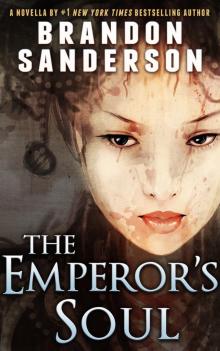 The Emperors Soul
The Emperors Soul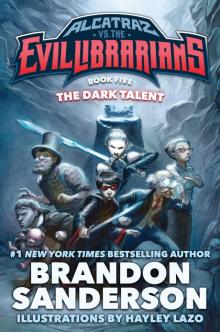 The Dark Talent
The Dark Talent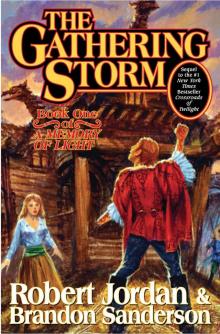 The Gathering Storm
The Gathering Storm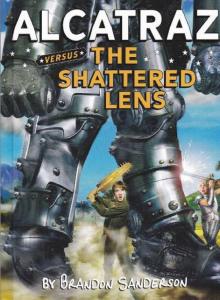 Alcatraz Versus the Shattered Lens
Alcatraz Versus the Shattered Lens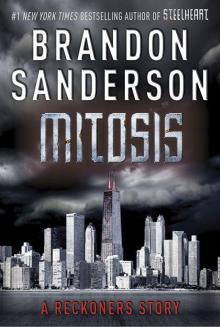 Mitosis
Mitosis Alcatraz vs. The Evil Librarians
Alcatraz vs. The Evil Librarians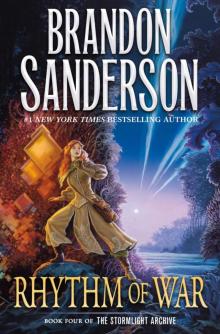 Rhythm of War (9781429952040)
Rhythm of War (9781429952040)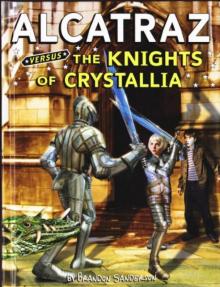 Alcatraz Versus the Knights of Crystallia
Alcatraz Versus the Knights of Crystallia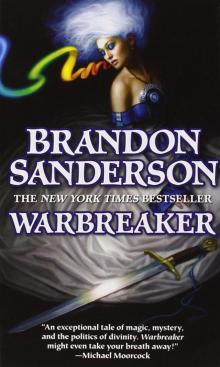 Warbreaker
Warbreaker Firstborn
Firstborn Starsight
Starsight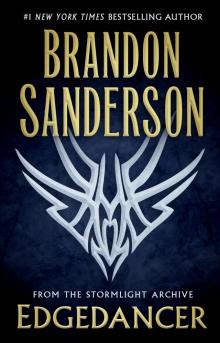 Edgedancer
Edgedancer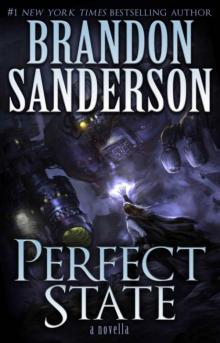 Perfect State
Perfect State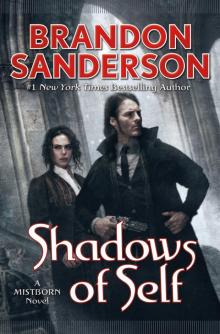 Shadows of Self
Shadows of Self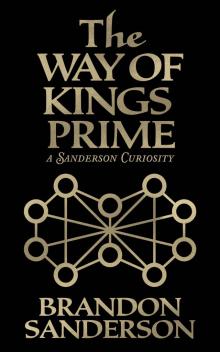 The Way of Kings Prime
The Way of Kings Prime Starsight (US)
Starsight (US)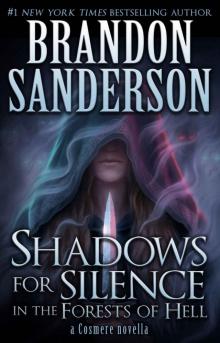 Shadows for Silence in the Forests of Hell
Shadows for Silence in the Forests of Hell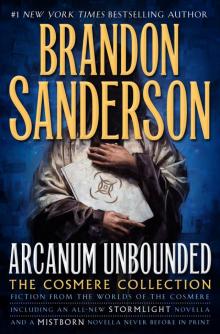 Arcanum Unbounded: The Cosmere Collection
Arcanum Unbounded: The Cosmere Collection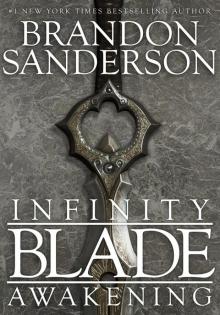 Awakening
Awakening Firefight
Firefight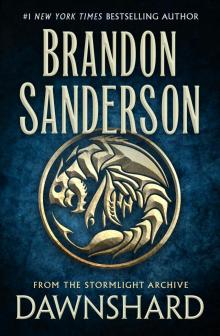 Dawnshard
Dawnshard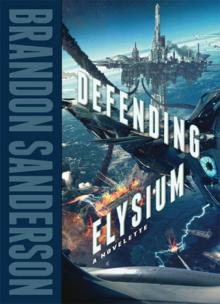 Defending Elysium
Defending Elysium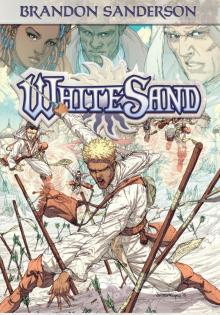 White Sand
White Sand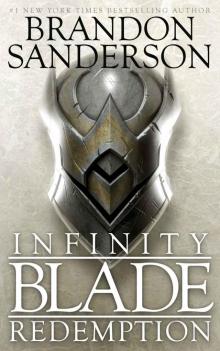 Infinity Blade: Redemption
Infinity Blade: Redemption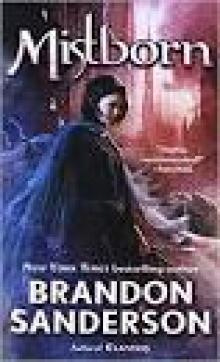 The Final Empire
The Final Empire Skyward
Skyward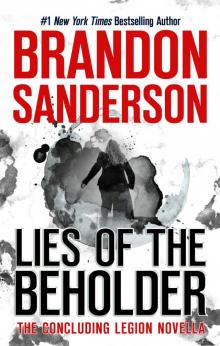 Lies of the Beholder
Lies of the Beholder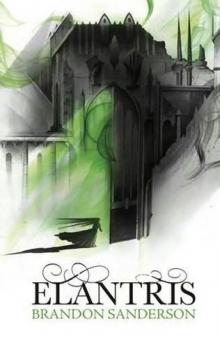 Elantris e-1
Elantris e-1 Steelheart r-1
Steelheart r-1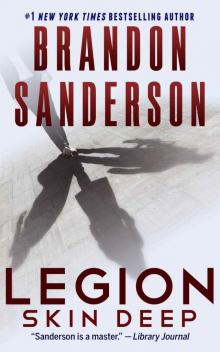 Legion: Skin Deep
Legion: Skin Deep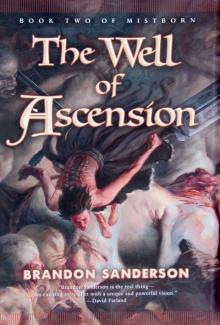 Well of Ascension
Well of Ascension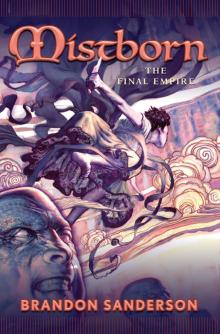 Mistborn
Mistborn Alcatraz versus the Evil Librarians
Alcatraz versus the Evil Librarians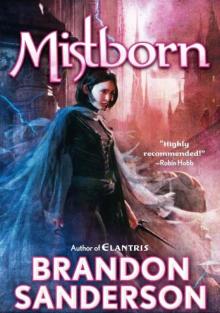 The Final Empire m-1
The Final Empire m-1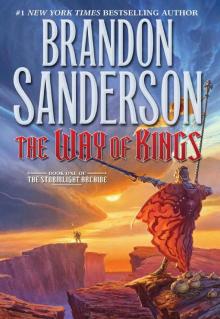 The Way of Kings (Stormlight Archive, The)
The Way of Kings (Stormlight Archive, The)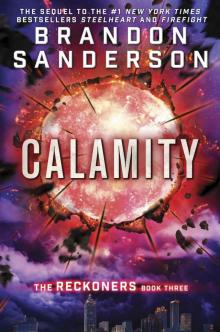 Calamity (The Reckoners)
Calamity (The Reckoners)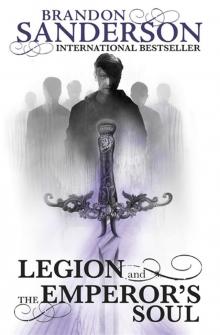 Legion and the Emperor's Soul
Legion and the Emperor's Soul Legion: The Many Lives of Stephen Leeds
Legion: The Many Lives of Stephen Leeds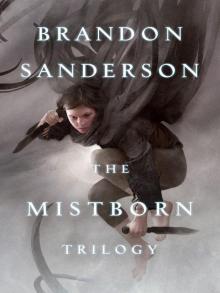 The Mistborn Trilogy
The Mistborn Trilogy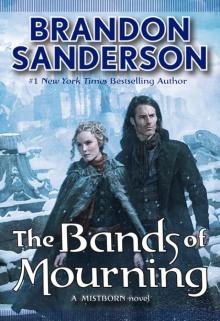 Bands of Mourning
Bands of Mourning Alcatraz
Alcatraz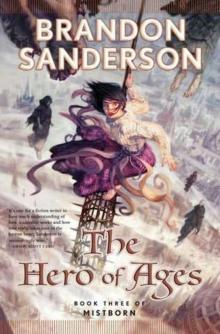 The Hero of Ages m-3
The Hero of Ages m-3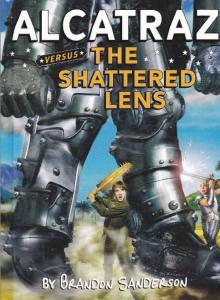 Alcatraz vs. the Shattered Lens
Alcatraz vs. the Shattered Lens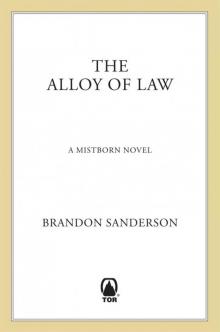 The Alloy of Law: A Mistborn Novel
The Alloy of Law: A Mistborn Novel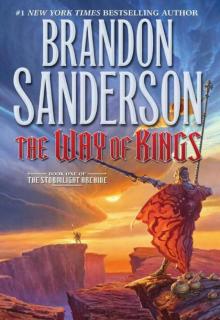 The Way of Kings sa-1
The Way of Kings sa-1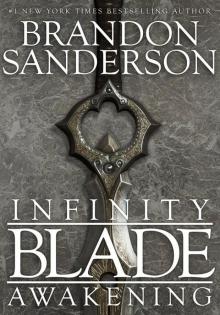 Infinity Blade: Awakening
Infinity Blade: Awakening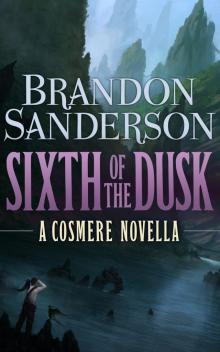 Sixth of the Dusk
Sixth of the Dusk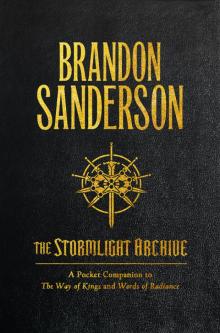 The Stormlight Archive
The Stormlight Archive The Aether of Night
The Aether of Night